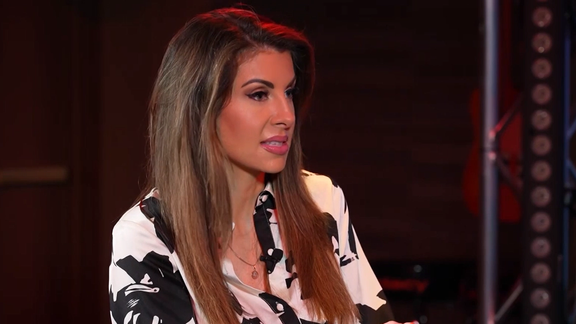In an exclusive interview with Iran International, Ortagus warned that if stronger action isn't taken, Iran will get a nuclear weapon.
"Under the current trajectory, the Iranian regime will get a nuclear weapon in the next administration unless we have a president with the fortitude to stop it," said Ortagus.
She told Iran International's Arash Alaei that no matter who gets elected president in November, will have to make "some very serious and very hard decisions about the regime and their nuclear weapons proliferation."
A recent IAEA report warned Iran is continuing to enrich uranium to near weapons-grade levels. According to the report, as of May 11, Iran has 142.1 kilograms of uranium enriched up to 60 percent which is an increase of 20.6 kilograms since that last report by the UN watchdog in February.
That means Iran's estimated stockpile of enriched uranium had reached more than 30 times the limit set out in the 2015 nuclear agreement between Tehran and world powers. Iran insists that its nuclear program is for peaceful purposes.
Ortagus also took the opportunity to criticize some Western perspectives that she feels underestimate the resolve and capacity of the Iranian government to advance its nuclear program.
Responding to a question about the enrichment rates of uranium under different US administrations, she provided figures to illustrate her point:
“What was the enrichment rate in the Trump administration? You know the answer to this, 5%. What's the most recent enrichment rate in the Biden administration? 84%," highlighting a significant escalation that has occurred under the current US policy framework.
Ortagus served as a spokesperson for the United States Department of State from 2019 to 2021 during the Trump administration.
She said under Biden's administration, the Islamic Republic has been emboldened
Ortagus said attacks on US forces, the atrocities of October 7, and Iran's support and funding of its proxies known as the 'Axis of Resistance', is further destabilizing the region and the world.
"We just saw the British merchant Marine ship that was sunk. I mean, it's insane to me that we have the Houthis fully funded and armed and backed by Iran, sinking British merchant ships... It is wild to me that we have a terrorist group shooting ballistic missiles at US Navy ships after 911," she said.
“It was Iranian-made drones that killed 3 American service members in Jordan in January... It’s Iranian-made hardware, military hardware... the Houthis [use] ballistic missiles to attack American ships on a weekly basis,” she stated, pointing out the direct consequences of a less assertive US policy on regional security.
Ortagus advocated for Trump's 'maximum pressure' policy to contain Iran.
She argued that Trump's policies had effectively brought Iran "to its knees" by significantly curtailing its oil exports and crippling its economy. She credited these measures with hindering Iran's ability to fund terrorism and pursue its ballistic missile and nuclear weapons programs.
“We took Iran’s ability to export oil off the market, right? I mean, they pursued some black-market endeavours, but because we simultaneously sanctioned Iranian oil and also unleashed American energy exports, we had a situation where we kept the price of oil down,” Ortagus explained.
Ortagus lamented what she views as a relaxation of the strict measures under President Joe Biden, suggesting that the current administration has failed to enforce sanctions with the same vigor, thereby allowing Iran to mitigate some economic pressures.
“The Biden administration will say, well, the sanctions are still in place, sure, but they’re not being enforced as effectively as they were in the Trump administration,” she noted, adding that this lax enforcement has enabled Iran to continue funding and equipping its proxies throughout the Middle East.
Looking to the future, Ortagus discussed the potential for policy changes in a possible second Trump administration, emphasizing that a return to a stance of maximum economic pressure could be expected.
She argued that such measures would be necessary to prevent Iran from achieving its nuclear ambitions: “President Trump has said unequivocally that Iran will not get a nuclear weapon on his watch, and that means every option is on the table.”
Ortagus told Iran International that the Iranian government remains a significant threat not only to its own people but also to regional peace and global stability.
She said Donald Trump would not say "no to a negotiation" with Iran under a second Trump administration but would enter it "from a position of strength," but maintained that "every option is on the table."









